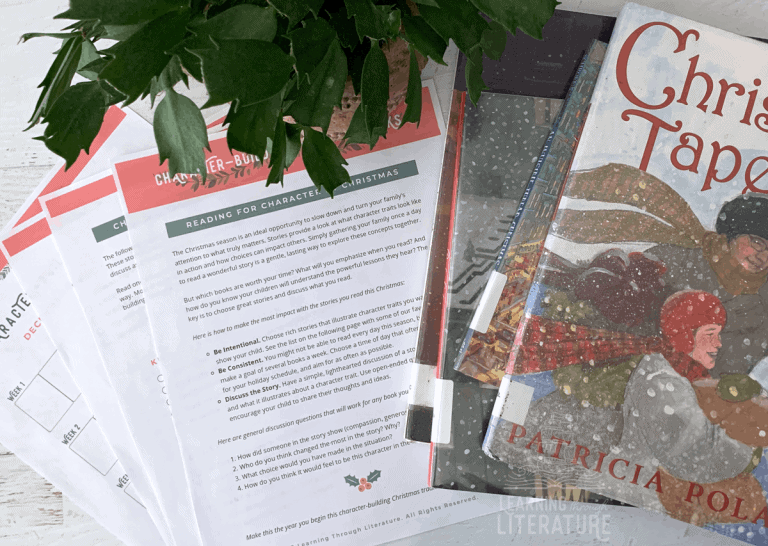How to Avoid Summer Brain Drain with Great Stories
This post may contain affiliate links which won’t change your price but will share a commission.
Inside: How to Avoid Summer Brain Drain with Great Stories
We solidify knowledge in our minds when we encounter it in from a new angle and, more particularly, when we connect to it emotionally.
That’s the power of story at work. We humans learn best that way.

Unfortunately, learning from dry, factual textbooks is nearly unavoidable in the education world. And with it comes the dreaded annual summer tradition: Brain Drain
We’re not surprised, right? When kids learn from a dry text and spit back out information to move on to the next textbook, there’s almost nothing (outside of sheer willpower or a photographic memory) compelling them to retain the information.
As education pioneer Sir Ken Robinson says,
Learning happens in the minds and souls, not in the databases of multiple-choice tests.
But our goal isn’t to instill fear about the quality of your child’s education. We have a solution to Brain Drain so that new knowledge doesn’t slip away over the summer.
How to Avoid Summer Brain Drain with Great Stories
Even if your children learned from uninspiring textbooks all year long, there was input of information. Connecting that information to great stories will help them create emotional connections to what they might otherwise “brain dump” over the summer.
Let’s say they memorized a history fact and remembered it for a test. Awesome. Will they remember it moving forward into next year? Maybe. Maybe not.
Now let’s say they memorized a history fact and over the summer read a great story that helps them empathize with a character living through that piece of history. Think that will stick in their minds better? Absolutely.
Emotional connection to a story related to a memorized fact has intrinsic, hidden value that impacts on a level that can’t be tested or measured.
Imagine giving your kids space to slow down, read, and make those connections on their own. Let them discover how a learned fact is woven into a story they’re connecting to emotionally. That’s where the magic happens.
That’s the learning happening “in the minds and souls,” as Robinson says.
Finding Time
Summer is the perfect time for this kind of connection-making reading.

You may be mentally running through weekly commitments and summer travel plans, but here are some simple ways to incorporate it into a busy week:
- Meal time read-alouds. You eat at least one meal together each day, right? You would be surprised at how many books you can finish in one summer when you’re reading aloud regularly during one of those meal times.
- Audio books in the car. In the car, on a road trip, or driving to practice. Make a habit of turning on an audio book whenever you hop into the car – however long or short the drive.
- Daily quiet reading time. Summer is for loose schedules and less routine (because, hallelujah, it’s summer), but eventually everyone misses the structure. Begin the summer with one daily rhythm of quiet reading at a certain time of day, and you’ll all feel more productive (and relaxed). You won’t hit the mark every day, but setting the expectation makes it more likely to happen.
- Summer reading programs. Participate in your local library’s summer reading program, create your own with fun incentives, or find one online. Having a tangible goal helps to prioritize reading when lazy days slip by quickly.
Choosing Books
Now, let’s talk about a simple way to compile a list of books for your child’s awesome summer reading.
Here it is in 3 easy steps:
- Go to the Book Finder.
- Apply filters for relevant topics.
- Boom, there’s your list.
It’s as easy as pulling up the Book Finder and clicking a few buttons. You may choose to filter by chapter books, picture books, or age range for independent reading. Or you might ignore all of that and get a variety to see what sparks the most reading interest.
Here’s a short video showing how easy the Book Finder is to navigate on mobile.
You’re the boss of summer brain drain. Kick it to the curb while your kids make strong learning connections and you find slices of rest and routine this summer.
And turn Summer Brain Drain into Summer Brain Gain.







